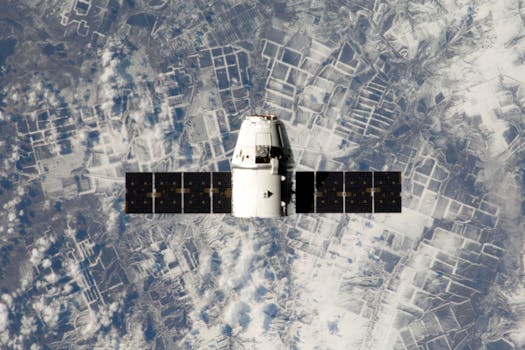The Future of Satellites: Revolutionizing Global Connectivity and Beyond

The Future of Satellites: Revolutionizing Global Connectivity and Beyond
The future of satellites is poised to revolutionize global connectivity, enabling faster and more reliable communication services, and transforming various industries such as navigation, weather forecasting, and remote sensing. With advancements in space technology and the increasing demand for satellite-based services, the satellite industry is expected to experience significant growth in the coming years.
Introduction to Satellites and Their Applications
Satellites have been a crucial part of modern technology, providing a wide range of services including communication, navigation, weather forecasting, and remote sensing. They have enabled global connectivity, facilitating international communication, trade, and commerce. Satellites have also played a vital role in scientific research, environmental monitoring, and disaster management.
The use of satellites has become increasingly prevalent in various industries, including telecommunications, broadcasting, and navigation. Satellite communications have enabled the transmission of data, voice, and video signals over long distances, connecting remote and underserved areas. Navigation systems such as GPS have relied on satellites to provide location information and timing signals, enabling accurate navigation and mapping.
Advancements in Satellite Technology
Recent advancements in satellite technology have led to the development of more efficient, cost-effective, and capable satellites. The use of new materials, propulsion systems, and power sources has enabled the creation of smaller, lighter, and more fuel-efficient satellites. The development of reusable launch vehicles has also reduced the cost of accessing space, making it more affordable for companies and organizations to launch satellites.
The increasing use of satellite constellations, which involve a large number of satellites working together to provide global coverage, has enabled the provision of faster and more reliable communication services. These constellations have also enabled the creation of new services such as satellite-based internet, which has the potential to connect billions of people around the world.
The integration of artificial intelligence, machine learning, and data analytics has also transformed the satellite industry, enabling the automation of satellite operations, the analysis of large datasets, and the prediction of maintenance needs. This has led to improved satellite performance, reduced downtime, and increased efficiency.
Future of Satellites: Trends and Opportunities
The future of satellites is poised to be shaped by several trends and opportunities, including the increasing demand for satellite-based services, the development of new technologies, and the growing need for sustainable and responsible space operations. The use of satellites is expected to become even more widespread, with new applications emerging in areas such as smart cities, autonomous vehicles, and environmental monitoring.
The development of new technologies such as quantum computing, blockchain, and the Internet of Things (IoT) is also expected to transform the satellite industry, enabling the creation of more secure, efficient, and connected systems. The increasing focus on sustainable and responsible space operations is also expected to drive the development of more environmentally friendly satellites and launch systems.
The future of satellites also holds many opportunities for innovation and entrepreneurship, with new companies and organizations emerging to develop and launch satellites, provide satellite-based services, and create new applications and use cases. The satellite industry is expected to experience significant growth, with the global satellite market projected to reach $1 trillion by 2025.
Conclusion
In conclusion, the future of satellites is poised to revolutionize global connectivity and transform various industries. With advancements in space technology, the increasing demand for satellite-based services, and the growing need for sustainable and responsible space operations, the satellite industry is expected to experience significant growth and innovation. As the use of satellites becomes even more widespread, it is essential to ensure that the benefits of satellite technology are equitably distributed, and that the risks and challenges associated with satellite operations are mitigated.







